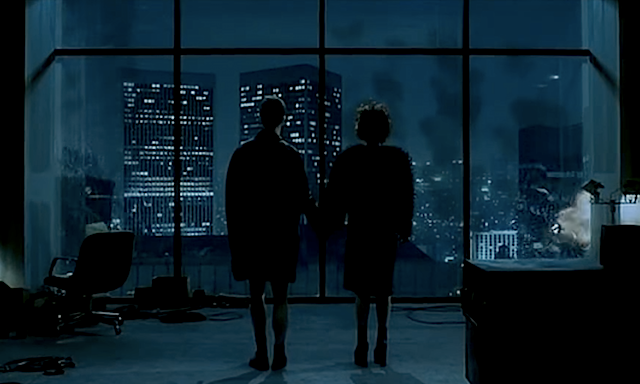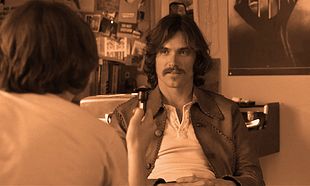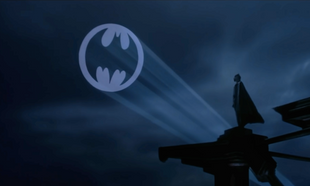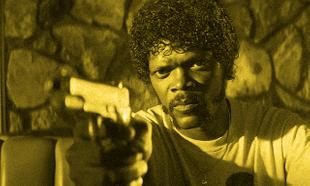The Final Scene looks at the last few minutes of some of the most well-known movies of the past fifty years. This week, in honour of its 20th anniversary, it's David Fincher's nihilistic psychological dramedy, 'Fight Club'...
As we move further and further into the dystopian landscape and see how reality television is distorting reality, how consumerism and capitalism is destroying the planet, it's easy to look to 'Fight Club' and say it was ahead of its time. Twenty years on, 'Fight Club' is viewed as prophetic by some.
Except it wasn't. It was of its time then, and of its time now.
Nothing's really changed and, if anything, things have gotten worse. We're still working jobs we hate, buying shit we don't need to impress people we don't like. The only difference is we can document the whole thing with our phones now.
Looking back at the ending of 'Fight Club', there was something in it that was supposed to feel joyous and liberating. Tyler Durden's plan had come to fruition, despite the narrator's best efforts to not let it happen. The buildings collapse as he fatefully joins hands with Marla, gently assuring her that they met at "a very strange time" in his life, all to the sounds of the Pixies and explosions.
While some have theorised that 'Fight Club' and its ending signalled the end of the '90s and consumerism, history has taught us that it didn't really end - it just rolled over and got rebooted. At its core, you can read the ending in story terms. It's simply about a man opening himself up to another person and laying it all out for them to see.
Throughout the movie, Tyler Durden shows up when the narrator can't cut it. He's well-spoken, capable, knows exactly what to do and when to do it, free in a way the narrator will never be free. Yet, he only shows when Marla moves into the frame, and the narrator can't imagine himself having a physical relationship with her. Instead, it's all Tyler. The only times he's actually himself with her is when it's not physical or sexual.
Yet, at the end, when he finally destroys Tyler once and for all, he's letting go of his own self-destructive nature and the hyper-masculine fantasy he's built up to cope with his own failures. The destruction we see isn't really about people's credit history or freeing them from it, it's about the narrator freeing himself, destroying the toxic parts, and starting over with someone as vulnerable as he can be. He's literally in his pants, wounded, and admitting that he's a flawed, damaged person - and, finally it seems, feels at peace with that.
There's no denying that 'Fight Club' hasn't aged well, and that its message of violence and anarchy isn't all that necessary in a world that's tearing itself to shreds all by itself. Yet, if we set aside all the baggage, there is something vulnerable and - whisper it - sweet about the ending.
It's an admission and acceptance of your own flaws, and that it can come when you open up instead of trying to bury it under consumer goods, bare-knuckle fights or fantasy figures.

















































































